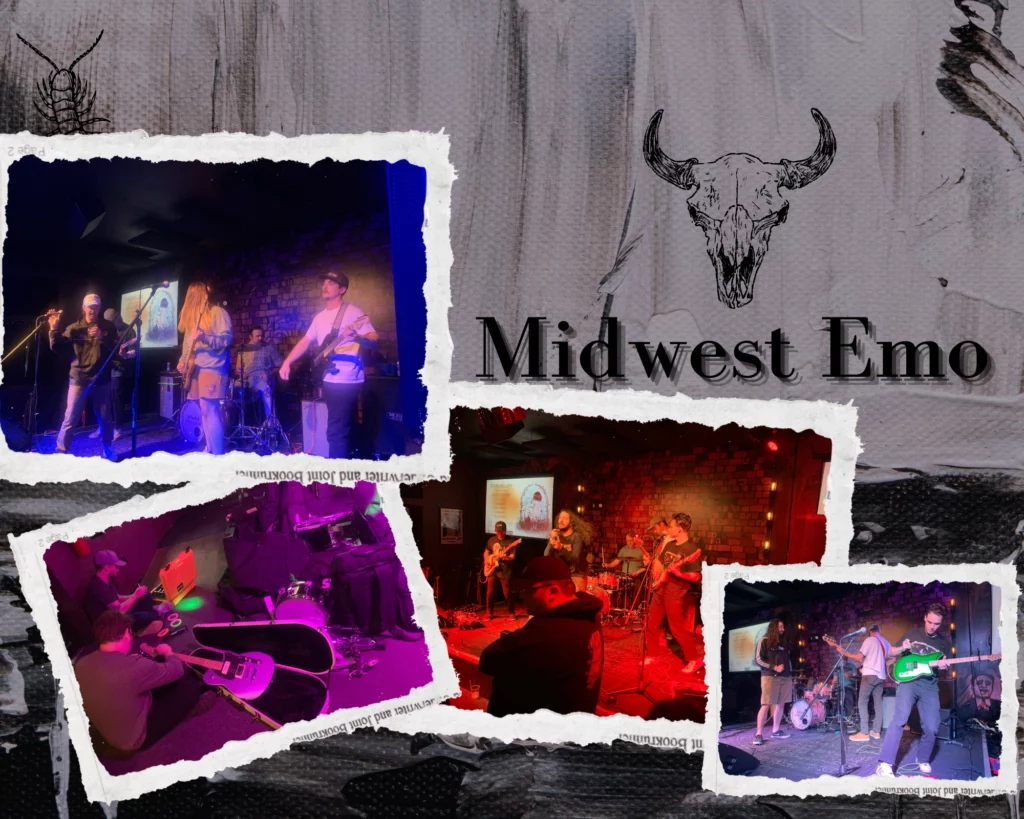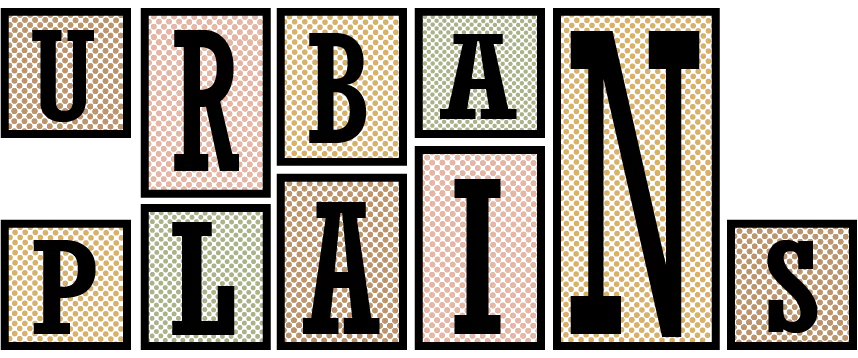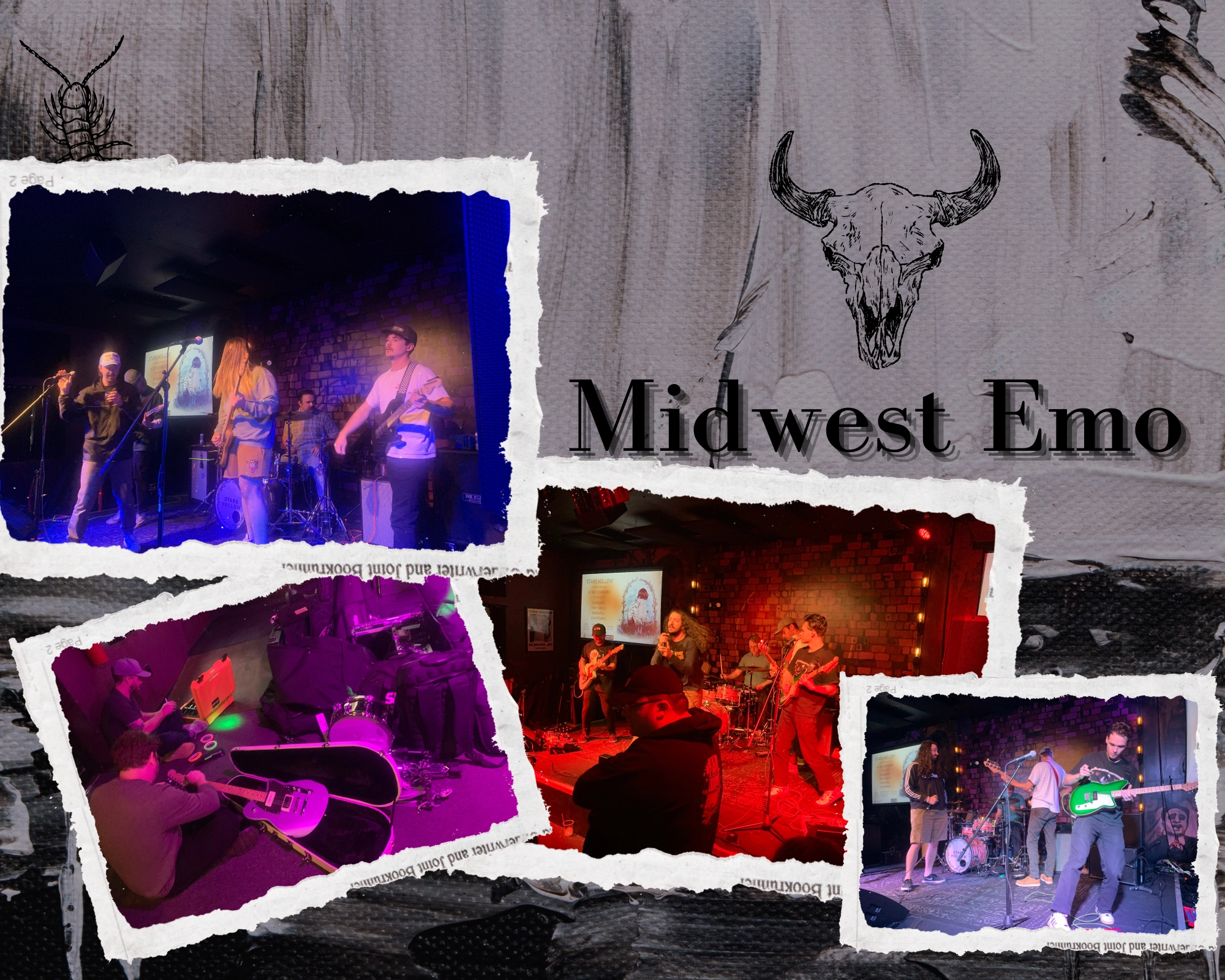Midwest Emo has expanded far beyond its homeland, becoming the music of choice for those soaked in emotion

You’ve likely pumped a fist to Midwest Emo—you just don’t realize it. If you’ve ever cranked up some prime Aughts Fall Out Boy or My Chemical Romance, you’ve listened to peak Emo. Or maybe you’re old school and you love Emo’s foundation, ‘90s bands like the Kansas-based Get Up Kids or the Wisconsin act The Promise Ring. Or you take your Emo a little arty, like Omaha’s Cursive and Bright Eyes. Or maybe with an extra helping of sugar like the kind Minneapolis’s Motion City Soundtrack specialized in.
And don’t forget the California version with current bands like Mom Jeans and Joyce Manor and less current bands like Say Anything, which still counts as Midwest Emo even if it’s from a place with significantly more sun and less cropland. In fact, there are Canadian bands (Pup) and New York bands (Prince Daddy & The Hyena) and Philly bands (Modern Baseball) and Seattle bands, namely Sunny Day Real Estate, which is often cited as Midwest Emo’s origin point.
In fact, Midwest Emo is everywhere. It’s a distinct subgenre of emo characterized less by location and more by sound—bright, hook-laden, slightly caustic and definitely soaked in lyrics that sound like the diary entries of the perpetually heartbroken. Guitars are in the front. Occasional screams aren’t far behind, though not always guaranteed. And don’t forget those punk undertones, whether in sound, ethos, or both.
The whole emo thing is older than you think. Like a lot in the punk and hardcore world, Ian MacKaye’s is partly to blame. In 1984, the Fugazi frontman signed a local DC band called Rites of Spring to his label, Discord Records. The group specialized in a blend of hardcore and punk that leaned on melodic guitar riffs and unique rhythms, building off the heartfelt noise of Minneapolis’ Husker Du. That pairing of hardcore and overt emotional expression was tagged “emocore,” eventually leading to the birth of Midwest Emo.
“I felt like it wasn’t very well received back then. It was a label that was kind of making fun of the melodic heartfelt hardcore my bands and other bands were focusing on at that time,” says Adam Rangel, guitarist for Virginia’s The Candyland Carcrash.
The feeling of resentment towards the label isn’t uncommon. Many musicians feel like assigning a label to a style of music minimizes the sound. Going against the grain and diversifying what is heard would become crucial in forming Midwest Emo.
According to music site The Ringer, Mackaye was so inspired by Rites of Spring that he went on to form the band Embrace. Thrasher magazine slapped the “emocore” label on Embrace, a term Mackaye publicly denounced in an interview with the magazine.
“‘Emocore’ must be the stupidest fucking thing I’ve ever heard in my entire life,” he said bluntly.
Emo is Emotion
Despite MacKaye’s reaction to the title, first Emo and now Midwest Emo have grown into their own subcultures. Part of the reason might be the vulnerability in the music. Midwest Emo in particular is awash in bright, shiny riffs and hooks soaked in themes of nostalgia, heartbreak, and sincerity. And while the songs often detail very specific emotions—see Sorority Noise’s “Using” or Modern Baseball’s “Tears Over Beers”—the individualized nature of emotions is a universal human experience.
“The emotion is heard in the lyrical content as well as the specific singing styles,” says Hunter Talbot, songwriter and co-host for the Pop Punk Emo Supremo Podcast. “Tone has a huge effect as well, with many of the songs within the genre played in minor keys and the experimentation in guitar tones/pedals. There is a lot of shine on the lead guitar with very specific-sounding riffs that you’ll only find in that genre. Midwest Emo tends to be more laid back, while Emo has a more explosive in-your-face type of feel.”
Social acceptance of Emo and Midwest Emo came with the embrace of mental health, which created a lane that had not previously existed. Midwest Emo captures something that has historically been neglected in society. Sure, it’s not the first genre to deal with depression, anxiety, social awkwardness, and vulnerability. Grunge did it. So did Alternative Rock, as did ‘80s Indie music. But Midwest Emo frankly deals with each, and often treats them as badges of honor. Need proof: Check out Illinois newbie band Harrison Gordon’s “Things Will Get Worse,” which is a downward spiral in thick, Weezer-inspired riffs and harmonies. Songs like that create a safe space for anyone who has felt alone, out of place, and either desperately in need of or wanting to get off the meds.
Social Media’s Impact on Midwest Emo
Midwest Emo has experienced a resurgence in popularity lately mainly due to its connection with the acceptance of mental health issues. Bands like Mom Jeans, The Hotelier, Tiny Moving Parts, and the now-on-hiatus Pinegrove have all built solid fan bases worldwide, with constant touring and plenty of shares on social media spreading their music far beyond the Midwest.
“Like most trends, after 10 to 20 years you’re likely to see a resurgence,” Talbot says. “When Emo music was popular, the internet was in its infancy. Now that the resurgence has hit, it’s a whole new boom for bands to take advantage of.”
Amber and Emily, hosts of the Emo Homies podcast, discuss popular trends within the Emo music culture. They highlight the connection between social media and older bands of the ‘90s and 2000s.
“Social media gives bands in different parts of the world exposure to this style of music, whereas before social media, different regions had different styles of music, and it was harder for them to connect and explore,” Amber says. “With social media, there is more opportunity for Midwest Emo bands to pop up anywhere in the world rather than just specifically in the Midwest region.”
And why not. Midwest Emo is universal. Everyone has felt awkward at one time or another. So it doesn’t matter if you’re from Singapore or Springfield, Midwest Emo is a safe place to let all of your emotions out. Everyone is welcome.

